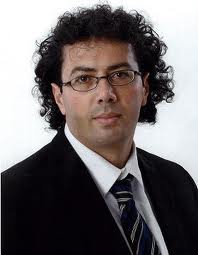 Ramzy Baroud
Ramzy Baroud -- World News Trust
Aug. 10, 2011 -- I remember how exhilarated I felt when I was told I was old enough to fast for the month of Ramadan.
My feelings had little to do with abstention from food and drink between dawn and sunset each day. For a child, there is little joy in that. The meaning and implications for me were much greater. I believed that the occasion signaled I had now become a man. I wanted to share this news with all my brothers, friends and neighbors.
Three days into the fast, lethargy set it. The end seemed near. Although I fared well in my first attempt at fasting for an entire month, I had my weak and reprehensible moments. I hid in dark corners with my favorite snacks: a cucumber, a tomato, a loaf of pita bread. To be caught would be shameful and degrading, a regression back into childhood, a terrible example to my younger siblings, and a ripe topic of ridicule from my older brothers.
Ramadan in a Gaza refugee camp is an entirely different experience from Ramadan anywhere else. A malnourished population of impoverished refugees abstains from food and gives endless thanks for lifes fortunes. The irony didnt escape me then, as it doesnt escape me now. The Imam of our refugee camps Great Mosque would spend much time thanking Allah for his numerous gifts. Hands extended to the sky, and faces lowered to the ground, the faithful would repeat in impressive unison: "Amen." Even as Israeli helicopters buzzed above their heads and military vehicles speed nearby, the faithful kept their faces lowered. Even as the smell of gunpowder and teargas poisoned the atmosphere, their hands stayed extended. Alhamdulilah, said the Imam. Thanks to God. And the crowd repeated, Amen.
more
http://worldnewstrust.com/all-content/gaza-somalia-humanity-lives-on-ramzy-baroud.html